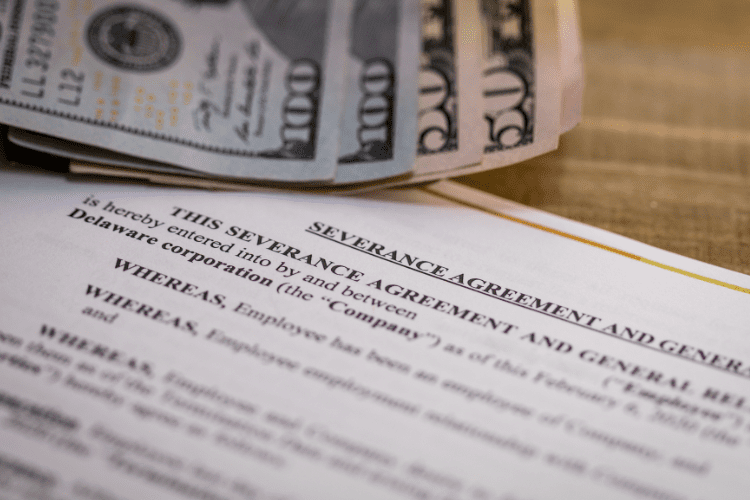Should I Expect Severance Pay if I’m Laid Off?

Layoffs have affected many workers recently, and the post-pandemic era brought with it mass layoffs for some of the biggest players in technology, including Amazon, Meta, and Microsoft. It can happen without warning and due to no wrongdoing by the employee. Not only are layoffs often unexpected, but they can leave you in financial distress. So, if you’re laid off, should you expect severance pay?
What Is Severance Pay?
Severance pay is compensation an employer provides to an employee who has been laid off. A severance package generally accompanies a layoff due to downsizing or retirement and no fault of the employee.
Who Gets Severance Pay?
Getting laid off doesn’t guarantee severance pay, though, as no federal or state laws require employers to provide severance pay. Generally, people who are fired due to underperformance or other issues are not offered a severance package. According to the U.S. Department of Labor, there is no requirement for severance pay, and it is a matter of agreement between an employer and an employee.
That said, one of the reasons why some employers do offer severance pay is to protect themselves from any potential legal claims that a disgruntled employee could bring against them. Another reason may be to offer goodwill and fairness to the employee.
How Much Is Given in Severance Pay?
Severance pay is generally calculated based on the employee’s years of service, rank, or position in the company, but the final package is based on the employer’s discretionary formula.
Typically, severance pay can amount to one to two weeks for every year of employment, but it can be more. In some instances, the severance pay can even be negotiated with your employer. Being laid off means you will not be earning income and will need a strategy moving forward until you’re able to find a new job. So, if you are given the opportunity to negotiate your severance pay, here are some things to consider:
- Try to get four weeks of pay for each year worked on the job.
- Try to extend your health, life, and disability insurance coverage—at least until you’re able to find a new job.
- Ask your employer about outplacement services that assist in helping you find a new job. Some employers offer this as part of the employee’s benefits.
- Ask for a letter of recommendation for future employment, and make sure your major accomplishments are included. You can draft this letter yourself and have your employer agree to sign it.
- Make sure your employer doesn’t dispute your claim for unemployment insurance.
How To Negotiate Severance Pay
Remember, if you’re offered a severance package, you usually have 21 days to sign the agreement. So, make sure to review the entire document thoroughly. Look for the following when reviewing your severance package:
- Amount of severance pay
- How it will be paid (lump sum or installments)
- Healthcare coverage
- Exact date of termination
- Options for retirement plan
- Outplacement or job-training services
During negotiations, always maintain a professional demeanor, compile as much information as possible about your employment history, and get everything in writing.
In most cases, signing a severance package means you are waiving any right to sue the employer for unfair or unjust treatment. So, if you feel strongly about that, you may not want to sign a severance package.
Do I Have To Pay Taxes on Severance Pay?
Severance pay is considered income, even though you no longer work for the employer. As with all income, the amount you’re taxed depends on how much you receive.
The Bottom Line
If an employer lays you off, receiving a severance package is a great thing. However, make sure you sit down, review your budget, and know how far that money will take you. Knowing how much time you have before you need to land another job is the key to not being financially stressed.
Read More:










